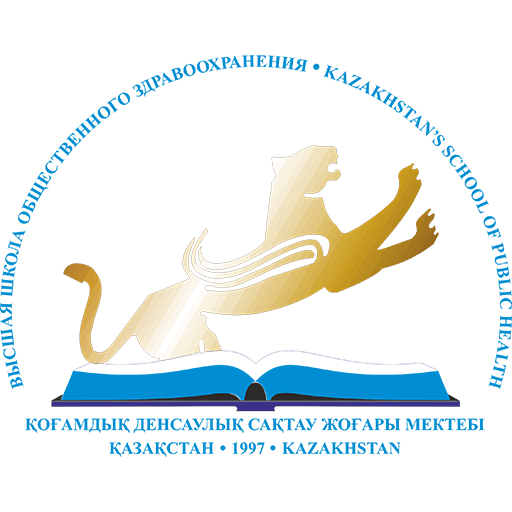| Name of the discipline, number of credits | Summary of the discipline |
| Major disciplines (ПДО) |
| Clinical and laboratory diagnostics in dermatovenereology | Methods and procedures for collecting biological material (epidermal scales, nail plates, affected hairs, smear-imprints, scrapings from the mucous membranes of the urethra, vagina, cervical canal, rectum; discharge from chancres) for the diagnosis of infectious and parasitic skin diseases, and pathogens of sexually transmitted infections. Collection rules and techniques for identifying the scabies mite and Demodex folliculorum. |
| Clinical pharmacology in dermatovenerology | Pharmacokinetics, pharmacodynamics of drugs used to treat infectious and non-infectious dermatoses, based on the principles of evidence-based medicine. Methods and techniques for using various drugs and dosage forms for various skin diseases. |
| Dermatocosmetology | Dermatocosmetologic care using procedures and cosmetic equipment for the treatment of acne, pigmentation disorders, keratomas, papillomas, warts, demodicosis, wrinkles, skin laxity, hair and nail pathologies, and others. General principles of cosmetic care: cleansing, masks, massage, peels, mesotherapy, botulinum therapy, cryotherapy — mechanisms of action, indications, contraindications, and regulatory acts in dermatocosmetology. |
| Gastroenterology. | Gastroesophageal reflux disease GERD, chronic gastritis, gastric and duodenal ulcer disease, enteropathies, intestinal dysbiosis. Diseases of the hepatobiliary system: functional disorders of the gallbladder, chronic cholecystitis, gallstone disease, hepatitis, liver cirrhosis. |
| Infectious diseases | Lesions of the skin and mucous membranes in infectious diseases – typhoid fever, paratyphoid fever, rickettsiosis, leptospirosis, erysipelas, erysipeloid, anthrax, plague, tularemia, meningococcal infection, hemorrhagic fevers; childhood infections (measles, rubella, scarlet fever, chickenpox), enterovirus infection, infectious mononucleosis. Differential diagnostic criteria, treatment. |
| Module Dermatovenereology in the hospital | Pyoderma, dermatomycosis, psoriasis, parapsoriasis, lichen planus, Devergie’s disease, eczema, atopic dermatitis, urticaria, prurigo, pemphigus, Duhring’s herpetiform dermatitis, bullous pemphigoid, erythema multiforme exudativum, toxicoderma, Lyell’s syndrome, discoid lupus erythematosus, scleroderma, dermatomyositis, lymphomas, Stevens-Johnson syndrome, ichthyosis, syphilis. |
| Module Dermatovenereology outpatient-polyclinic | Scabies, pediculosis, viral dermatoses, dermatitis, photodermatoses, pruritus, rosacea, acne, acneiform dermatoses, alopecia, vitiligo, dyschromia, pityriasis rosea (Gibert), cutaneous tuberculosis, leishmaniasis, vasculitis, xanthomas,annular granuloma, lipoid necrobiosis, cutaneous amyloidosis, follicular keratosis, keratodermas, neurofibromatosis, mastocytosis, gonorrhea, chlamydia, trichomoniasis, ureaplasmosis, mycoplasmosis, bacterial vaginosis, HIV. |
| Module Pediatric dermatovenerology in the hospital | Features of dermatovenereological diseases in children: pyoderma, dermatomycosis, psoriasis, parapsoriasis, lichen planus, Devergie’s disease, eczema, atopic dermatitis, urticaria, prurigo, pemphigus, Duhring’s herpetiform dermatitis, bullous epidermolysis, erythema multiforme, toxicoderma, Stevens-Johnson syndrome, Lyell’s syndrome, discoid lupus erythematosus, scleroderma, sclerema neonatorum, ichthyosis, dermatomyositis, congenital syphilis. |
| Module Pediatric dermatovenerology outpatient-polyclinic | Clinical features, diagnostics, and treatment of infectious and non-infectious skin diseases in children: scabies, pediculosis, viral dermatoses, dermatitis, pruritus, pityriasis rosea (Gibert), rosacea, acne, acneiform eruptions, alopecia, vitiligo, dyschromia, photodermatoses, annular granuloma, lipoid necrobiosis, cutaneous amyloidosis, follicular keratosis, keratodermas, cutaneous tuberculosis, leishmaniasis, neurofibromatosis, mastocytosis, prurigo, gonorrhea, chlamydia, trichomoniasis, ureaplasmosis, mycoplasmosis, bacterial vaginosis, HIV. |
| Oncology | Precancerous conditions (Queyrat erythroplasia, Bowen’s disease, actinic keratosis, verruciform erythroplasia); Benign tumors (nevi, epithelial tumors – lipoma, atheroma, pilonidal cyst, hemangiomas, lymphangiomas); Malignant skin neoplasms (basal cell carcinoma, squamous cell carcinoma, melanoma, Merkel cell carcinoma, carcinomas associated with hair follicles, sweat glands, and sebaceous glands), cutaneous metastases of internal organ cancers. |
| Component of choice (КВПД) |
| Comorbid conditions in psoriasis | Study of comorbid conditions in psoriasis: cardiovascular diseases (ischemic heart disease, arterial hypertension); type 2 diabetes, metabolic syndrome, obesity, and depression — all sharing common pathogenic mechanisms associated with a systemic immune-inflammatory process in the patient’s body. The role of dendritic antigen-presenting cells, type 1 and type 17 T-lymphocytes, and pro-inflammatory interleukins in the pathogenesis of inflammation. |
| Rare genetic skin diseases in children | Etiology, clinical-diagnostic, laboratory, and genetic criteria for skin diseases in children, with an emphasis on real clinical cases from dermatovenereologist practice: Bloch-Sulzberger syndrome — genetic factors, clinical symptoms, stages of skin manifestations, other signs of the syndrome, diagnosis including family history, histological findings, and molecular genetic testing for Bloch-Sulzberger syndrome, treatment methods, prognosis, and prevention. |
| Scientific research methodology and biostatistics | Research Methodology and Biostatistics — fundamentals of probability theory, hypothesis testing, analysis of variance, correlation analysis, parametric and non-parametric tests, standardization, graphical methods and computer technologies, data processing. Study of methods used in clinical, sociometric, and econometric research, as well as sources of scientific information in medicine that are in demand in research practice. |

